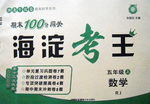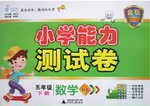题目内容
【题目】阅读下面短文,在空白处填入1个适当的单词或括号内单词的正确形式。
My feelings about science have 【1】 (complete) changed. More than one science teacher at my new school 【2】 (be) excellent and friendly. The science facilities(设备) are very good with laboratories that have all the 【3】 (late) equipment. Our 【4】 (chemist) teacher takes us to public science lectures about four times each term,【5】 are always interesting, because the lecturers are famous 【6】 their field of science. In the last 20 years, seven Canadian scientists 【7】 (win) the Nobel Prize. Now 【8】 I'm becoming more and more interested in is physics and I want to study it at university. But my parents are 【9】 (astonish), as they always thought I would become 【10】 teacher of English.
【答案】
【1】completely
【2】is
【3】latest
【4】chemistry
【5】which
【6】in
【7】have won
【8】what
【9】astonished
【10】a
【解析】
本文是一篇记叙文。文章作者介绍了自己对科学态度转变的原因以及立志从事科学研究的决心。
【1】
考查副词。句意:我对科学的看法完全改变了。修饰动词changed,用副词,故填completely。
【2】
考查时态和主谓一致。句意:我新学校的几位科学老师既优秀又友好。陈述的是客观事实,用一般现在时,more than one+单数名词作主语,谓语动词用单数,故填is。
【3】
考查形容词最高级。句意:实验室里的设备都是最新的。根据句意,可知此处表示“最新的”,应该用最高级形式,故填latest。
【4】
考查名词。句意:我们的化学老师每学期带我们去听四次公共科学讲座,这些讲座总是很有趣,因为讲师们在他们的科学领域很有名。根据句意,可知此处用名词作定语,表示“化学老师”,故填chemistry。
【5】
考查非限定性定语从句。句意同上,此处为非限定性定语从句,关系词指代先行词public science lectures,并在从句中作主语,that不能引导非限制性定语从句,故填which。
【6】
考查介词。句意同上,表示“在某一领域”常用介词in,故填in。
【7】
考查时态。句意:在过去的20年里,有七位加拿大科学家获得了诺贝尔奖。时间状语“In the last 20 years”表明用现在完成时,主语是seven Canadian scientists,谓语动词用复数,故填have won。
【8】
考查主语从句。句意:现在我对物理越来越感兴趣了,我想在大学里学习物理专业。此处为主语从句,从句中的be interested in缺少宾语,故填what。
【9】
考查形容词。句意:但是我的父母很惊讶,因为他们一直认为我会成为一名英语老师。此处缺少形容词作表语,修饰人,用ed结尾的形容词,表示“感到……的”,故填astonished。
【10】
考查冠词。句意同上,teacher是发音以辅音音素开头的可数名词,此处泛指“一位老师”,故填不定冠词a。

 期末100分闯关海淀考王系列答案
期末100分闯关海淀考王系列答案 小学能力测试卷系列答案
小学能力测试卷系列答案